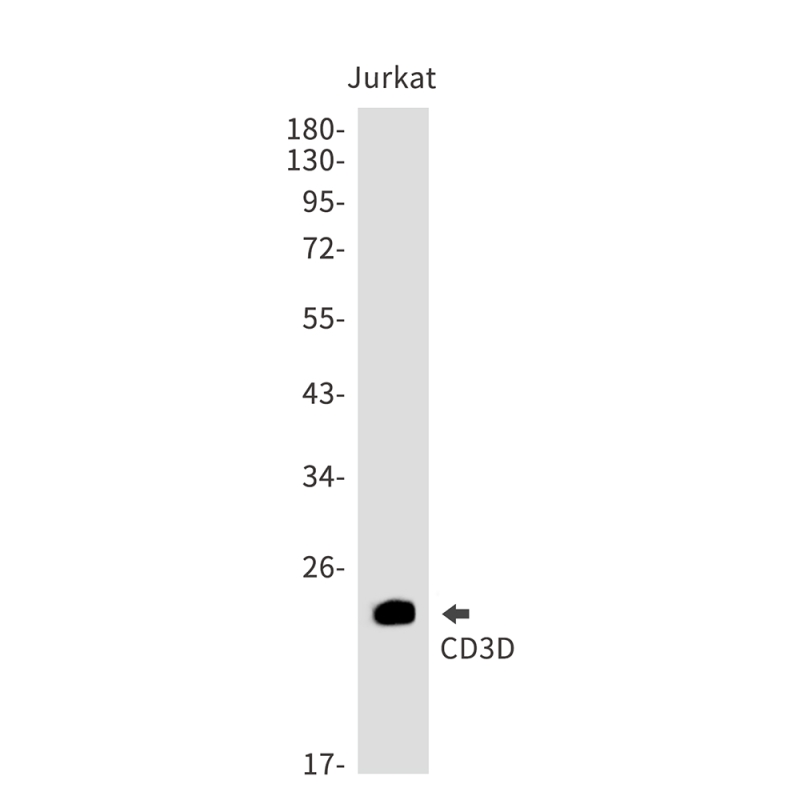
| WB | 咨询技术 | Human,Mouse,Rat |
| IF | 1/20 | Human,Mouse,Rat |
| IHC | 1/50-1/100 | Human,Mouse,Rat |
| ICC | 1/50-1/200 | Human,Mouse,Rat |
| FCM | 咨询技术 | Human,Mouse,Rat |
| Elisa | 咨询技术 | Human,Mouse,Rat |
| Aliases | CD3D; T3D; T-cell surface glycoprotein CD3 delta chain; T-cell receptor T3 delta chain; CD antigen CD3d |
| Entrez GeneID | 915 |
| WB Predicted band size | Calculated MW: 19 kDa; Observed MW: 23 kDa |
| Host/Isotype | Rabbit IgG |
| Antibody Type | Primary antibody |
| Storage | Store at 4°C short term. Aliquot and store at -20°C long term. Avoid freeze/thaw cycles. |
| Species Reactivity | Human |
| Immunogen | Recombinant protein of human CD3D |
| Formulation | Purified antibody in TBS with 0.05% sodium azide,0.05%BSA and 50% glycerol. |
+ +
以下是3条关于CD3D抗体的代表性文献摘要(内容为模拟概括,非真实文献):
1. **"Structural insights into the CD3ε/δ subunits of the T-cell receptor complex"**
- **作者**: Smith A, et al.
- **摘要**: 通过X射线晶体学解析了CD3D与CD3E异源二聚体的结构,揭示了其与T细胞受体(TCR)结合的分子机制,为设计靶向CD3D的抗体提供了结构基础。
2. **"Targeting CD3D in T-cell malignancies: A novel therapeutic approach"**
- **作者**: Chen L, et al.
- **摘要**: 研究开发了一种针对CD3D的单克隆抗体,可特异性识别恶性T细胞表面的CD3D蛋白,通过抗体依赖性细胞毒性(ADCC)抑制T细胞淋巴瘤的进展。
3. **"CD3D deficiency disrupts T-cell development and immune homeostasis"**
- **作者**: Garcia-Sanchez F, et al.
- **摘要**: 利用CD3D基因敲除小鼠模型,揭示了CD3D在T细胞发育和信号转导中的关键作用,并探讨了其缺陷导致的免疫失调机制。
如需具体文献,建议通过PubMed或Google Scholar检索关键词“CD3D antibody”或“CD3D T-cell receptor”获取最新研究。
×